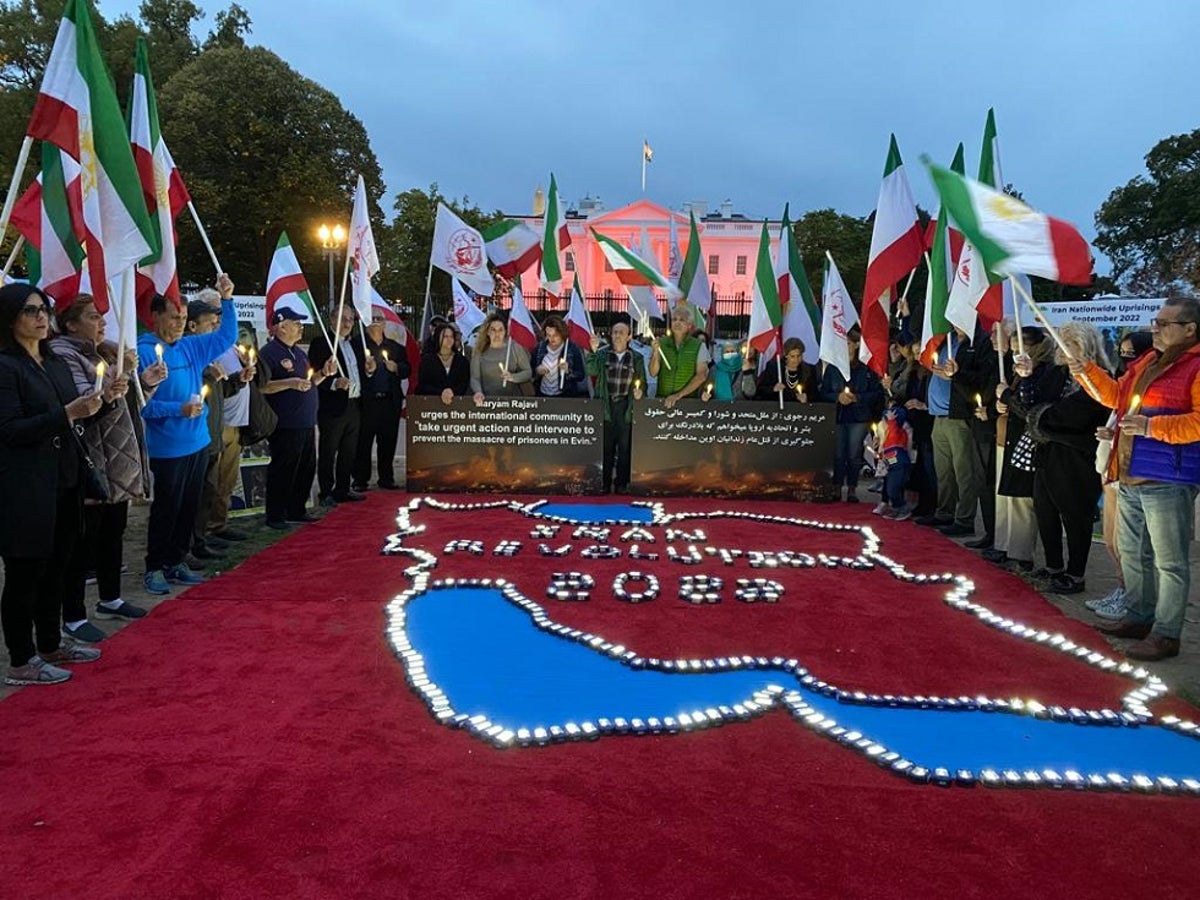
Iranian-Americans held a demonstration outside the White House on Sunday in support of growing and escalating protests across Iran that on Saturday saw four killed when a fire broke out at a notorious prison.
The protest comes as others in Berlin, New York, and other cities around the world have occurred in recent weeks since the death of Mahsa Amini, a 22-year-old woman who died in Iranian police custody after being detained for not wearing a head covering.
Her death sparked both protests in the streets of Tehran and other cities as well as more subtle acts of defiance against the Islamic Republic; women have been seen in public without head coverings in greater numbers, others have cut their hair.
International human rights groups say more than 200 have been killed since the protests began last month. On Saturday, a fire at the Evin prison in Tehran killed four prisoners at the facility thought to house many people facing national security charges. Anti-government protesters and other groups including the Organization of Iranian-American Communities, which is hosting Sunday’s protest, have blamed regime forces for starting the fire. The Independent cannot verify that claim.
“All indications are that the fire in [Evin] was a pre-meditated plan,” wrote Maryam Rajavi, president-elect of the National Council of Resistance of Iran, which opposes the Iranian government.
“The [United Nations] and [Secretary General] must hold the clerical regime’s leaders accountable,” she continued.
Protests have continued for weeks across Iran, in universities and public spaces, in what has come to be seen as the boldest challenge to the government’s legitimacy by a populist movement in decades. Roughly 200 attended Sunday evening’s event outside of the presidential residence, according to organisers.
The demonstrations come at a time when Tehran and Washington remain engaged in negotiations regarding a potential restart of the Iran nuclear accord signed under the Obama administration in 2015. The deal is opposed by the conservative Washington foreign policy establishment but supported by many liberal Democrats as a means of potentially preventing Iran from developing a nuclear weapon without risking war.







